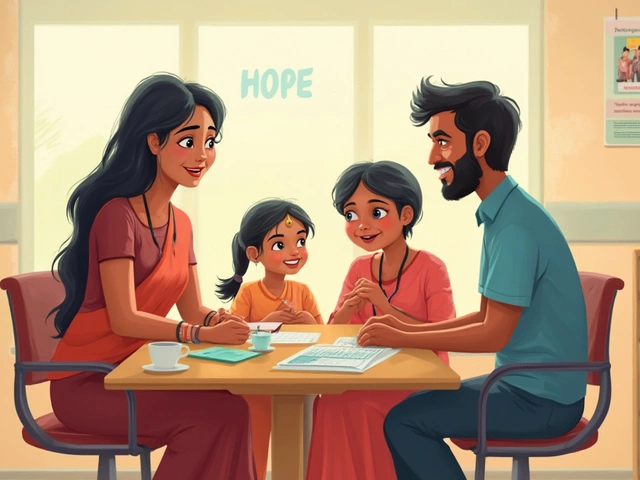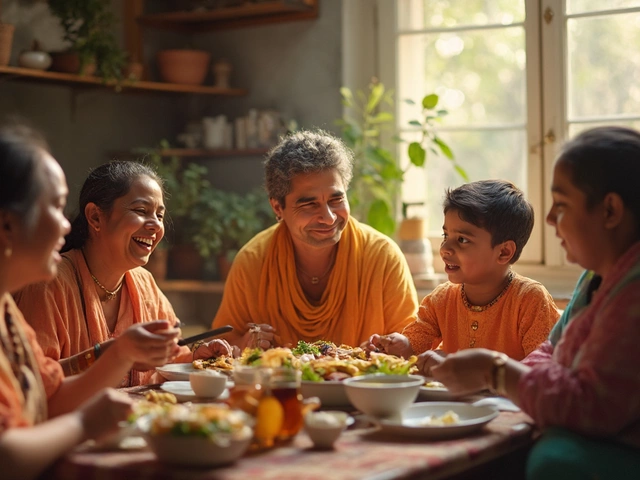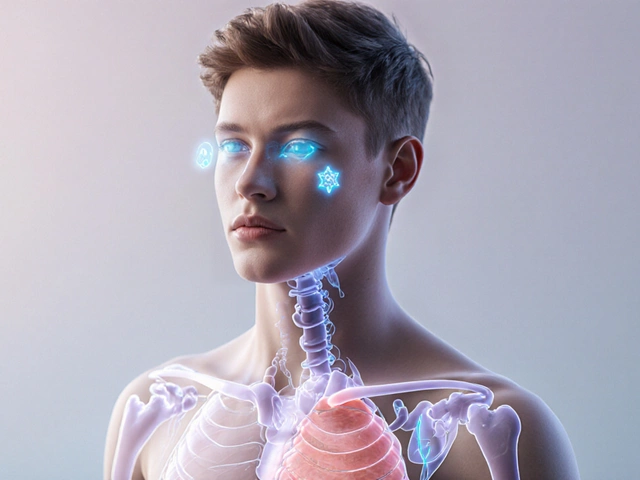Chemotherapy is a powerful tool used to combat cancer, often providing hope in the darkest times. However, many wonder what happens to their body after the treatment ends. The journey of recovery can be as challenging and complex as the treatment itself, with numerous factors influencing how a person heals. Physical, mental, and emotional changes are a natural part of the process, and it's important to recognize the diverse ways individuals experience them.
Each person's experience with chemotherapy is unique, influenced by the specific drugs used, the individual's overall health, and the particular cancer treated. While some side effects may fade quickly after treatment, others might linger, requiring time and a gentle approach for full recovery.
This article delves into the various impacts of chemotherapy on the body, offering support strategies and insights that may ease the transition post-treatment. Whether it's managing fatigue, rebuilding strength, or finding peace in the midst of uncertainty, understanding the road to recovery can empower patients and their families to face the future with confidence.
- Understanding the Impact of Chemotherapy on the Body
- Short-term vs Long-term Effects: What to Anticipate
- Strategies for Supporting Physical Recovery
- Caring for Mental and Emotional Well-being After Treatment
Understanding the Impact of Chemotherapy on the Body
Chemotherapy, a central pillar in the fight against cancer, wields its influence by targeting rapidly dividing cells. While it aims primarily at cancerous cells, this treatment doesn't discriminate entirely. That's why, during chemotherapy, both cancerous and healthy fast-growing cells are affected. This delicate balance between treatment and side effects leads to the myriad of symptoms and changes one might experience. A patient might notice hair thinning or an upset stomach—common reactions to how chemo interacts with not just the enemy but the body's normal tissues too. Navigating these changes requires keen understanding and support as the effects vary widely from person to person.
Besides the visible changes, there's a complex array of internal processes underway. The body's blood cells, vital in fighting infections, carrying oxygen, and preventing bleeding, are often impacted. This might result in fatigue, infections more frequent than usual, and bruising or bleeding with minimal trauma. A unique part of the chemo experience is its tendency to introduce 'chemo brain', a term often used to describe cognitive issues like memory lapses or trouble concentrating. The exact causes remain somewhat elusive, but it’s widely recognized as a significant part of post-chemo life.
“Chemotherapy is like a double-edged sword. While it helps fight cancer, it poses challenges that patients and healthcare providers must navigate together.” - Dr. Lisa A. Carey, University of North Carolina
The duration and intensity of chemotherapy treatment directly influence these effects. Some individuals receive chemo for a few weeks, while others endure months of treatment schedules. Each course has its impact, ranging from short-term discomforts to prolonged changes in organ function. The heart can sometimes feel the strain of this rigorous battle, as certain chemo drugs may lead to cardiotoxicity, introducing the potential for heart complications.
Digging deeper, a key aspect lies in the specific drugs used in the regimen. Each drug has a different mechanism and toxicity profile. For example, drugs like Adriamycin may be particularly harsh on the heart, while others like Cisplatin can affect hearing and kidney function. Here’s where personalized medicine comes into play, a crucial step in tailoring treatments to minimize side effects and maximize effectiveness. Understanding the different impacts helps doctors and patients prepare and act proactively, often introducing supplements or lifestyle changes to support the body during this strenuous period.
| Drug | Potential Side Effects |
|---|---|
| Adriamycin | Cardiac Issues |
| Cisplatin | Kidney Damage, Hearing Loss |
| Paclitaxel | Nerve Damage |
It's also important to remember the toll on emotional and mental health. The chemotherapy journey, marked by its share of physical changes, can lead to stress, anxiety, and depression. This emotional undercurrent, if left unaddressed, might slow down recovery. In such cases, speaking with a therapist or joining support groups can offer a release and a pathway to healing. A holistic approach, considering the body and mind, often yields the best outcomes.
Short-term vs Long-term Effects: What to Anticipate
When embarking on the journey of chemotherapy, understanding the timeline of potential effects can be a crucial part of preparing oneself mentally and physically. The journey through chemotherapy varies significantly from person to person, yet a common thread lies in the experience of both short-term and long-term effects. Immediately after a chemotherapy session, many patients report a feeling akin to a hangover. This includes nausea, fatigue, and a general malaise, typically settling in a few hours or days post-treatment. Unlike a simple tiredness, the fatigue experienced here is often profound, affecting one's ability to perform even the simplest of daily tasks.
Short-term effects of chemotherapy are often more noticeable due to their immediate impact. Hair loss, for instance, becomes a visual reminder of the body's response to the chemotherapy recovery process. While distressing, it's important to remember that these effects usually aren't permanent. In fact, hair regrowth often starts soon after the completion of treatments. Then there's the mouth sores and taste changes, transforming meal times into a less pleasurable experience. For those undergoing treatment, adopting a diet that's more palatable can help, with fresh fruits and high-protein foods leading the pack.
Transitioning to the long-term effects, some might find them more subtle yet equally challenging. In some cases, the nerve damage known as neuropathy can linger, bringing numbness or tingling, usually in the fingers and toes. This condition can affect coordination and balance, making day-to-day activities unexpectedly tricky. Heart health also represents an area that might experience long-term changes, depending on the specific chemotherapy drugs utilized. According to a report from the National Cancer Institute, certain forms of chemotherapy increase the risk of heart issues, necessitating regular monitoring and a heart-healthy lifestyle post-treatment.
"Many patients find the gradual return to normalcy a test of patience, as they navigate both seen and unseen changes in their bodies," shared Dr. Amanda Thomson, a renowned oncologist specializing in integrative cancer therapy.Embracing both the short-term and the long-term aspects of body healing involves staying informed and proactive. Regular check-ups with your healthcare provider ensure any concerning changes are caught early and managed appropriately. Also, acknowledging and addressing mental health is vital, as the psychological impacts of such a journey can be as taxing as the physical ones. Patients often find solace and strength in support groups, where shared experiences foster a sense of community and understanding.
Recognizing that the path to recovery is multifaceted and unique to each individual can empower both patients and their families. Preparation equips one for the rollercoaster ride of post-cancer treatment recovery, offering a steadier hand as they work to regain control and well-being.

Strategies for Supporting Physical Recovery
Recovering from chemotherapy is a nuanced journey that requires attention to various aspects of physical health. Understanding the body's needs post-treatment can significantly aid in chemotherapy recovery and foster a path towards renewed strength and vitality. To begin with, nutrition plays a crucial role, offering the foundation upon which recovery is built. A balanced diet rich in vitamins, minerals, and protein can help rebuild tissues, strengthen the immune system, and combat fatigue. Patients are often advised to include plenty of fruits, vegetables, lean proteins, and whole grains in their diet. It's essential to tailor this nutrition plan to individual needs, possibly with the guidance of an experienced dietitian who understands the specific challenges posed by cancer treatment.
Physical activity is another pivotal element in the recovery process, though it must be approached with care and personalized according to each individual's capacity. Initially, gentle exercises, such as walking or light stretching, can be beneficial, gradually building up to more strenuous activities as strength and stamina improve. Regular exercise not only supports physical health but also benefits mental well-being, reducing stress and improving mood. Incorporating activities like yoga or tai chi can provide additional benefits by enhancing flexibility and balance while fostering a sense of mindfulness and peace.
Another aspect to consider is adequate rest and sleep. The body's need for sleep can increase following cancer treatment, as sleep is crucial in healing and repair. Crafting a suitable sleep environment—one that is quiet, calm, and free from distractions—can improve sleep quality. Additionally, activities such as reading or listening to soothing music before bed can contribute to a more restful night. Understanding the importance of rest and pacing oneself according to personal energy levels is vital to avoid burnout and promote steady recovery.
It's important not to underestimate the role of hydration. Drinking plenty of water assists in flushing toxins out of the system, a crucial process following chemotherapy. It can alleviate common side effects such as dry mouth and aid the body's natural recovery capacity. Staying hydrated requires regular water intake throughout the day, and at times, adding flavor with a splash of lime or a few mint leaves may encourage greater fluid consumption.
According to the American Cancer Society, "Physical activity and good nutrition can make you feel better during and after chemotherapy, helping you handle the side effects better." This succinctly captures the interdependence between lifestyle choices and how successfully one navigates the journey of recovery.
Moreover, regular check-ups with healthcare providers remain an integral part of the recovery strategy, providing an opportunity to monitor progress and address any lingering side effects promptly. Leveraging these appointments to discuss anything unusual or concerning is crucial, fostering an open line of communication with the medical team, which can lead to personalized adjustments in the recovery plan. Finally, involvement in support groups or community activities tailored for post-chemo patients can also offer both emotional support and practical advice for those navigating similar paths.
Caring for Mental and Emotional Well-being After Treatment
When the whirlwind of chemotherapy comes to a halt, the emotional journey often begins anew. Many individuals find themselves grappling with the unexpected mental toll the experience leaves behind. It's not uncommon to feel a mix of relief, anxiety, gratitude, and confusion as you navigate the post-treatment landscape. Recovering from chemotherapy impacts not just the body but the mind as well, presenting challenges that require time, understanding, and often, professional guidance.
For some, the cessation of active treatment can bring about feelings of vulnerability or a sense of being adrift without the safety net of regular medical monitoring. This new normal, while assuring in the sense of recovery, can sometimes lack the structure and support previously associated with constant clinical care. It's crucial to acknowledge these emotional shifts, rather than dismiss them, while fostering open communication with loved ones and healthcare providers about what you're experiencing. Acknowledging that body healing involves both mind and body is a vital step towards holistic recovery.
"Cancer changes your life, often in subtle, unending ways. But I hope I made choices that nourished my soul, both during and after treatment." – Jane Biehl, Ph.D., Cancer Survivor
Practices such as mindfulness, meditation, and gentle physical activities can serve as anchors during this transition. They not only reduce stress but also promote a sense of peace and centeredness, allowing for a more grounded approach to handling day-to-day challenges. Learning to pay attention to your thoughts and emotions without judgment fosters resilience and helps mitigate post-treatment anxiety. Even simple practices of gratitude can promote emotional healing, shifting focus from what has been lost to what has been learned and gained.
Peer support groups and therapy can also act as pillars of support, providing valuable spaces to share experiences and find solidarity with others who truly understand the journey of healing from cancer treatment. Engaging with others offers a sense of community and understanding, crucially reminding you that you are not alone in this process. These interactions often lead to newfound friendships that enrich life beyond the cancer narrative.
Employ thoughtful strategies to nurture your mental health, allowing yourself grace as you come to terms with an evolving identity post-cancer. Remember, there is no right timeline for healing, and every individual's journey will look different. Allow yourself to embrace this new chapter with hope and purpose, recognizing that the strength you've shown through treatment has prepared you to thrive beyond it.








